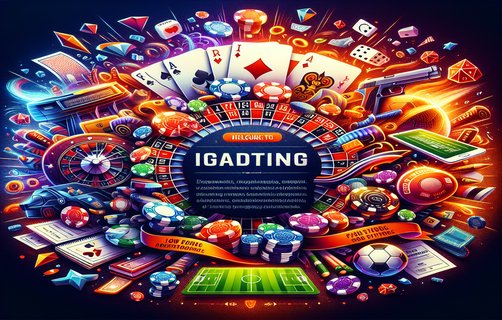The Strategic Edge: Mastering Time Management in Competitive Gambling
In the fast-paced environment of gambling, effective time management is essential for both casual players and seasoned professionals. By employing a designer's thinking approach, we can dissect different strategies, such as sponsorship deals, multiplier jackpots, and playing styles, that enhance our gambling experience and overall profitability.

One of the first considerations in this analysis is sponsorship deals. These arrangements can be highly lucrative for professional players, providing financial backing and stability. By dedicating time to securing and nurturing these partnerships, players can focus more on strategy and less on the monetary aspects. Time management here involves not only the negotiation process but also maintaining relationships with sponsors, which can lead to more opportunities in the future.
Next, we delve into multiplier jackpots and their significance in time management. These gaming features offer players a chance to exponentially increase their winnings within a short time frame. Understanding the mechanics behind these jackpots can significantly inform a player's strategy, allowing for the optimization of betting quantities and timing. A well-timed bet during a multiplier event can yield substantial rewards, reinforcing the need for both long-term planning and quick decision-making during gameplay.
Then, we explore the impact of accumulators. By linking several bets together, players can achieve high returns when successful. This strategy requires keen time management skills as players must carefully assess which events to include in their accumulators and when to place these bets. Here, the concept of using time to analyze past trends and potential outcomes becomes imperative, allowing for strategic accumulation at the right moments.
Additionally, understanding the influence of Big Time Gaming mechanics—especially their innovations in game design and player engagement—allows players to harness these tools effectively. Their models often encourage shorter play sessions that demand efficiency. Players must apply time management strategies that not only focus on quick returns but also factor in the potential enjoyment and engagement level of the gambling experience. Knowing when to switch games or strategies can help maintain interest and keep losses at bay.
Another key element in time management is customizable settings. Many modern gambling platforms allow players to adjust their preferences—tailoring their gaming experience to fit their time constraints and strategic goals. Utilizing these features can lead to more effective play sessions, enabling players to maximize their potential gains while minimizing wasted time. By tailoring settings to personal preferences, players often find a balance that enhances both enjoyment and profitability.

Understanding opponents is crucial in gambling. This goes beyond mere observation; it involves mimicking opponents and adjusting strategies. Time must be dedicated to studying behavioral patterns of both tight and loose players. Playing against tight players, for instance, might require a more conservative approach, while adapting to looser play can open up aggressive betting strategies. Successful gambling is about adapting tactics based on the time spent analyzing opponents and crafting a winning strategy.
In summary, a comprehensive approach to time management, strategically intersecting sponsorship deals, gaming mechanics, and player analysis, lays the foundation for a successful gambling career. By managing time wisely, players can enhance their competitive edge and potentially increase their winnings while enjoying the thrill of the game.
